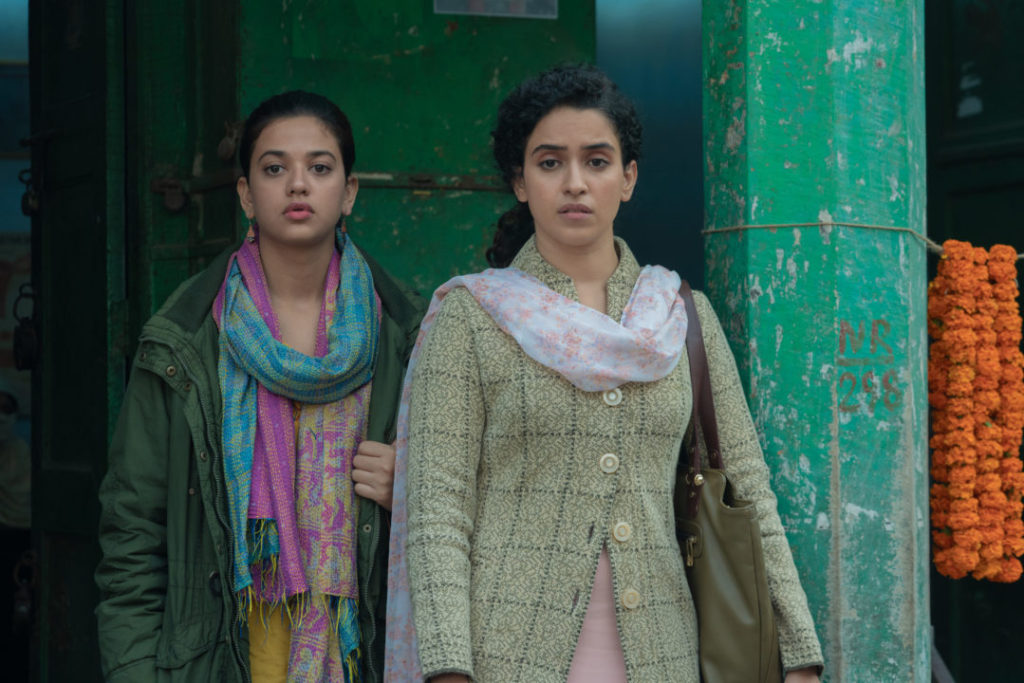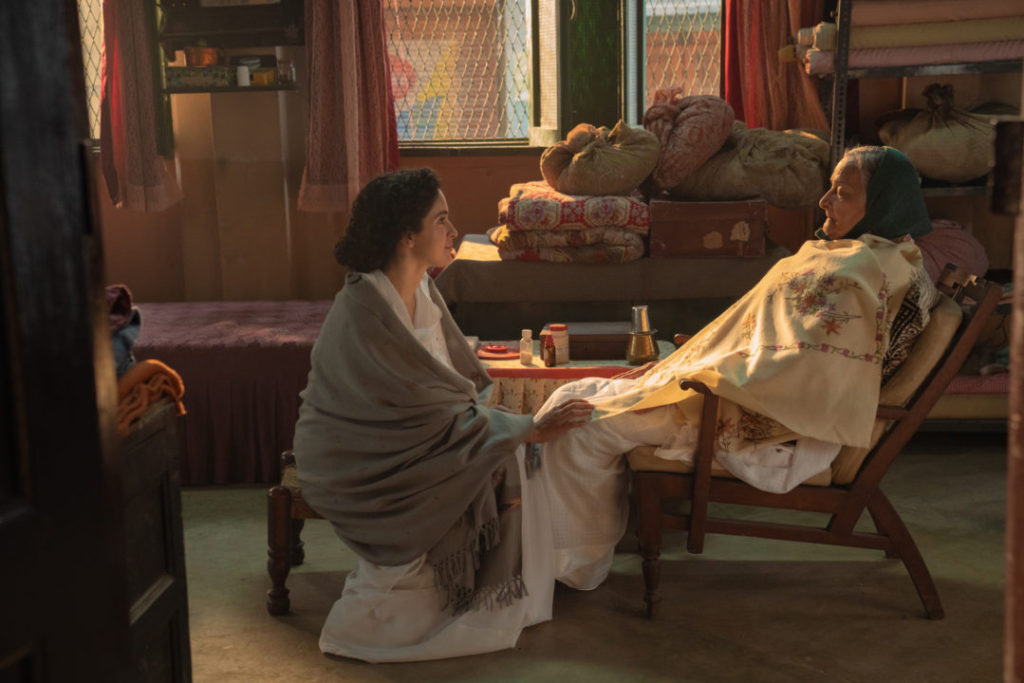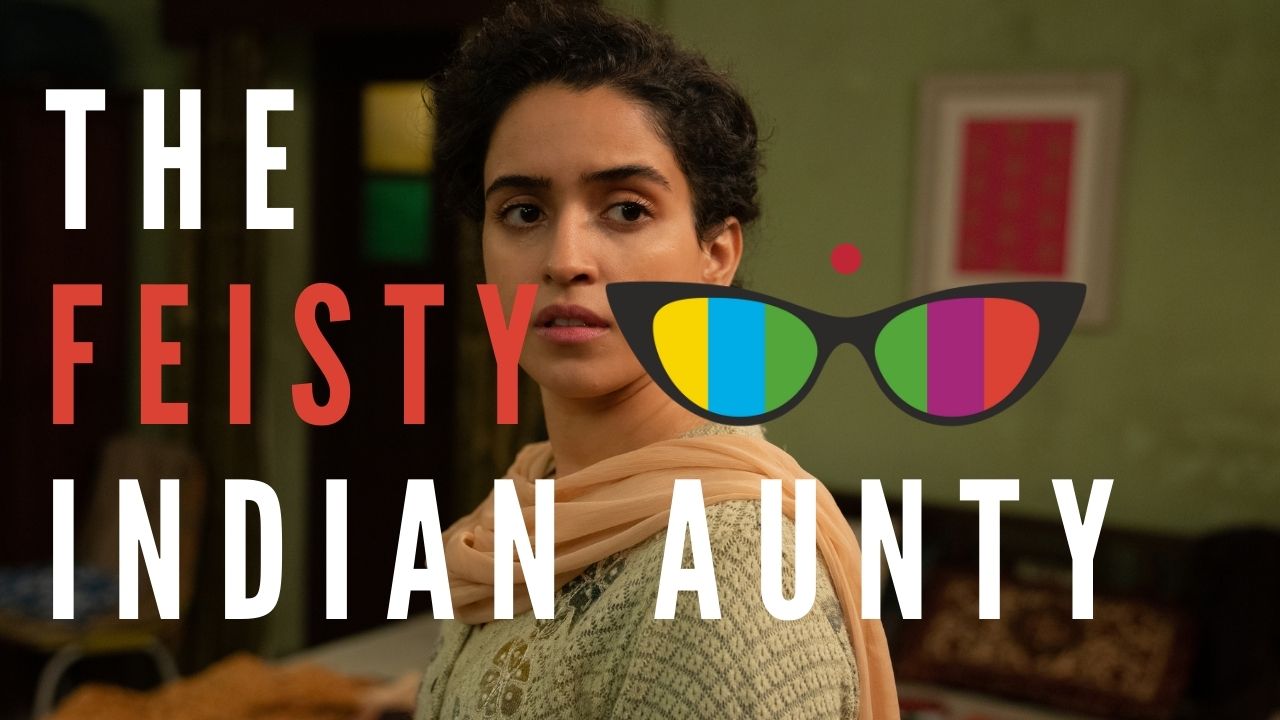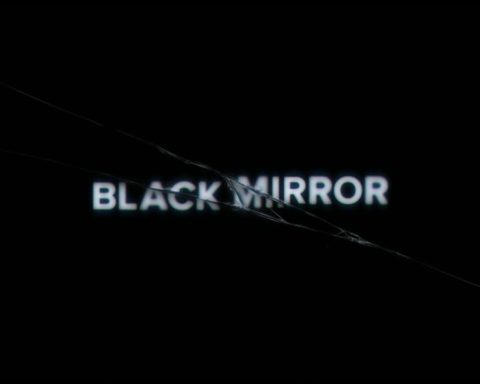Hey everyone, it is I, your Feisty Indian Aunty, who just watched the Hindi movie Pagglait (which means crazy, manic, insane) on Netflix. (Note: I only speak Tamil, so this was a subtitled experience for me.)
The movie begins with a funeral. We learn that our protagonist, Sandhya, had been in a loveless arranged marriage for just a few months before her husband, Astik, tragically dies. And when we first meet her, she’s lying in bed and browsing Facebook, unable to mourn. How could she? She barely knew the fellow.
Pagglait takes the idea that the greatest tragedy that can befall an Indian woman is the death of her husband, and subverts it into its very opposite. What if this was her way out? What if this tragedy was the best thing that could have happened to her? The movie was sad, funny, and filled with great examples of the many ways in which people deal with death.

Watching this movie, I couldn’t help but think about the complexities of love and what that means in an arranged marriage? In arranged marriages, they say love grows because you are learning to care for the man or woman you wed. Our ancestors believed that arranged marriages seldom failed. But that could also be because back then, once you were in, there was really no escape. For better or for worse.
But the thing we don’t talk about is what happens when a person loses their spouse early in said marriage?
Having a spouse die is traumatic under any circumstance, not just for the wife or husband, but their families too. For women, it is harder and, as a widow, you may find yourself also losing your newfound family and friends. Your level of grief would really depend on how in sync you were with your spouse, but if you did not love your now dead husband then you should find it easier to move on. At least this time, it may be on your terms. (Widowers have it easier of course, as it usually isn’t long before self-serving relatives show up to make another match. Sometimes even before the wife’s cremated ashes get cold.)
And then there’s the money. Inheritance always comes into play when a man or woman dies young. If the man is the breadwinner and lives with his extended family, relatives, like vultures, will swoop in with plenty of ideas on how to deprive the widow of what is rightfully hers.
The message of Pagglait is that a strong, independent, and able bodied woman doesn’t have to be reliant on any man, dead or alive, or his money. If a man can be self-sufficient, why can’t a woman? We are meant to applaud Sandhya’s decision to walk away from everything. We are meant to recognize her nobility in giving up her inheritance. But that felt like an oversimplification. Sandhya may be a liberated modern woman, but she still lives in a society in which generational systems prevent her from being able to be as successful as her husband. She has real obstacles to overcome and I for one would have preferred her to take some of that money with her when she left.

Watching this movie I was reminded of a story from my own past.
Years ago, when I was in University, I met a Hindu couple from different castes who were so in love but could not marry due to parental objections from both sides. They waited for eight long years. They wore down their parents and eventually got that elusive approval. The finally got married. But it wasn’t a happily ever after. Within a year, at the age of 38, the husband died of a heart attack. The wife was devastated and remained a widow for the rest of her life. He mother-in-law kept urging her to get remarried and every time she would give her the same response. “He was the love of my life and the year we spent together was as good as 50 years for me.”










Follow Us